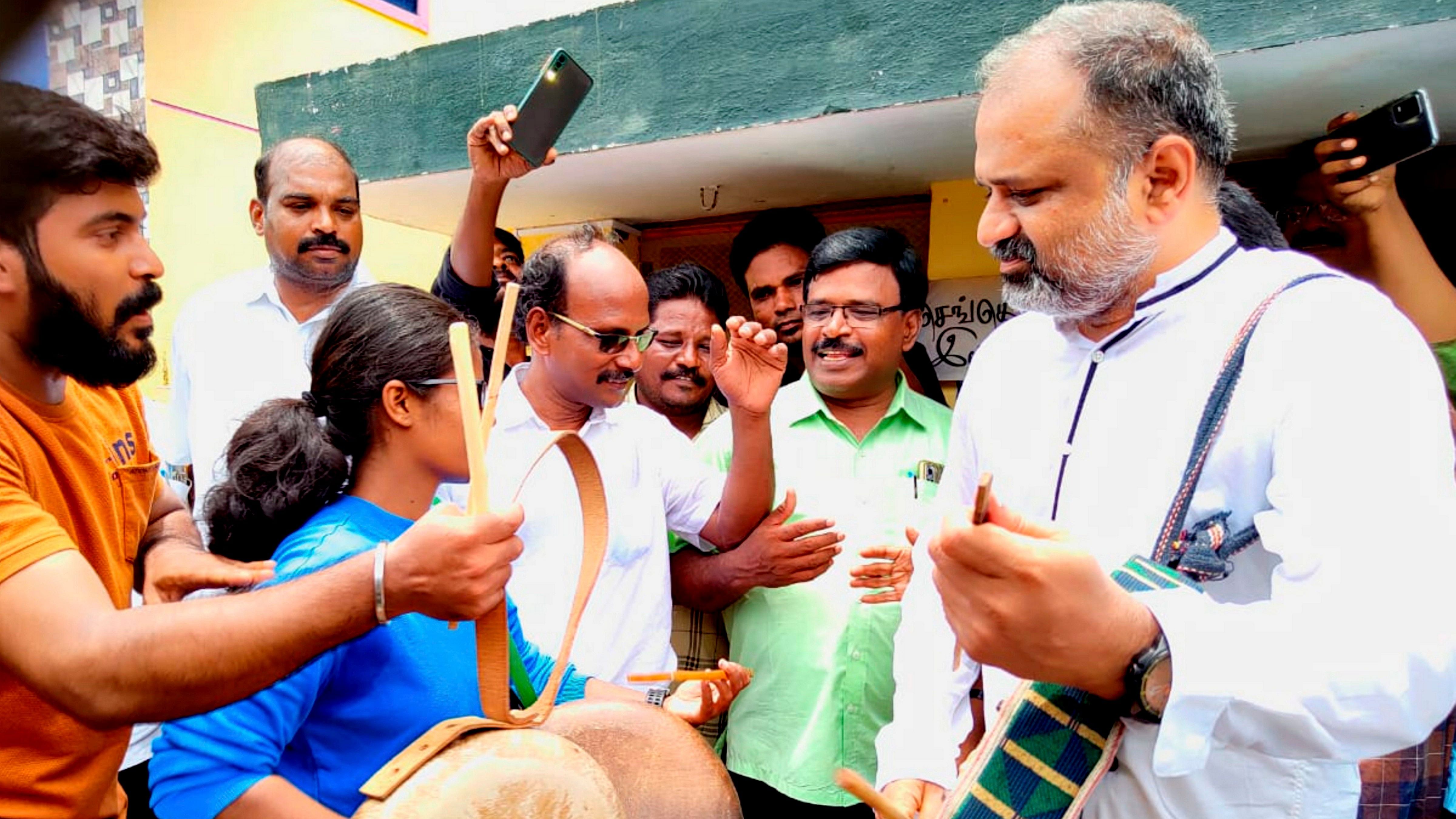
With the Supreme Court ordering the release of A G Perarivalan in the Rajiv Gandhi assassination case, the focus is now on the remaining six convicts, including Nalini and her husband Murugan, who are languishing in jail for the past 31 years.
While the Tamil Nadu government said it will consult legal experts on their release after going through the Supreme Court verdict delivered on Wednesday, the opinion on whether Perarivalan’s release will help them remains split.
Nalini, her husband Murugan, Santhan, Ravichandran, Jayakumar, and Robert Pyas are the six other convicts in the case. While Nalini, Murugan, Santhan, and Perarivalan were sentenced to death, Ravichandran, Robert Payas, and Jayakumar, were sentenced to life by the Supreme Court.
Nalini’s death sentence was commuted to life in 2000 after Rajiv Gandhi’s wife Sonia Gandhi appealed for remission, while the capital punishment awarded to the other three was commuted to life by the Supreme Court in 2014. The release of all seven was recommended by the Tamil Nadu cabinet in 2018.
M Radhakrishnan, who represents Nalini, told Deccan Herald that he will move the Madras High Court “very soon” seeking her release in the “light of the Supreme Court verdict.”
“I believe the findings in the Perarivalan verdict will be binding on all High Courts. While the SC has used Article 142, the High Courts can invoke Article 226. The release has been granted on the grounds of unexplained and inordinate delay. The final relief is molded as per Article 142. The relief could have been given without invoking Article 142,” he added.
Also Read | Congress 'deeply pained, disappointed' over release of Rajiv Gandhi assassin, slams govt
Senior counsel Rakesh Dwivedi, who represented the Tamil Nadu government in the Supreme Court, says the judgement has clearly established that the decision of the Council of Ministers is binding on the Governor.
“The only offence that remains now is 302 of IPC which comes under the state’s powers. If the Council of Ministers have recommended the release of all seven, logically, the verdict applies to all of them. The recommendation of the Cabinet is binding on the Governor. I think they should be released,” Dwivedi told DH.
Also Read — Timeline: Perarivalan’s arrest and release
However, another senior counsel, who did not wish to be identified, said delay in disposal cannot be a ground for release of convicts. “The issue is not Perarivalan-centric. He may deserve to be released. The real issue is whether the Supreme Court has the power to release. It is a legal or constitutional question and not factual one,” he said.
He also said Article 142 cannot be invoked opposed to law – the five-judge verdict on the Rajiv Gandhi assassination case. “When the crime is under a Central act, only the Union of India/President has the power. This is a settled law,” he added.